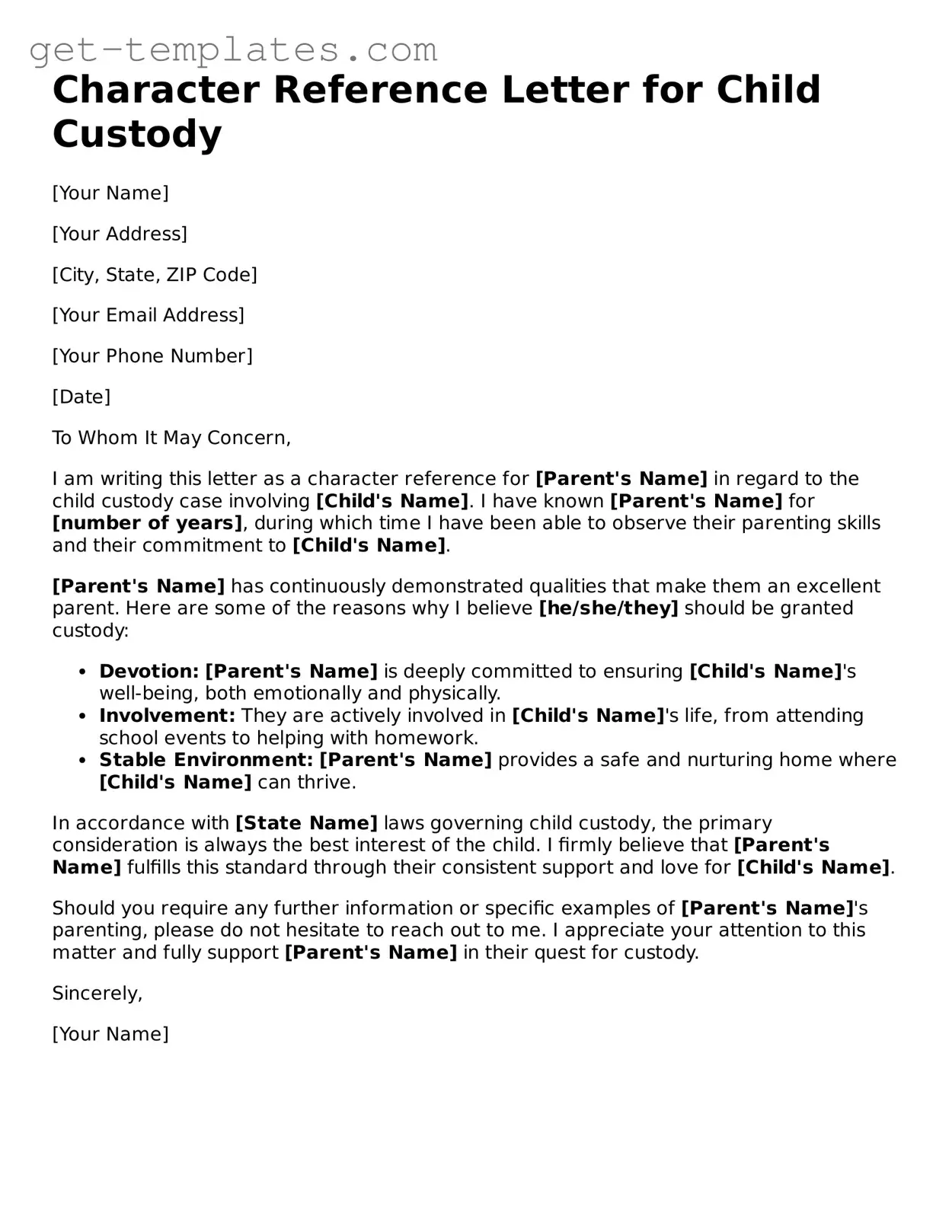What is a Character Reference Letter for Child Custody?
A Character Reference Letter for Child Custody is a document that provides insight into a parent’s character, parenting abilities, and suitability for custody. This letter is typically written by a friend, family member, or colleague who knows the parent well. It aims to support the parent’s case in custody proceedings by highlighting their strengths and positive qualities.
Who should write the Character Reference Letter?
The letter should ideally be written by someone who has a close relationship with the parent seeking custody. This could include:
-
Friends
-
Family members
-
Teachers or coaches
-
Neighbors
-
Childcare providers
It is important that the writer is familiar with the parent's relationship with the child and can provide specific examples of their parenting skills.
What should be included in the letter?
A well-crafted Character Reference Letter should include the following elements:
-
Introduction:
A brief introduction of the writer, including their relationship to the parent.
-
Personal Observations:
Specific examples of the parent’s interactions with the child, showcasing their parenting style and commitment.
-
Character Traits:
Descriptions of the parent’s qualities, such as responsibility, nurturing nature, and ability to provide a stable environment.
-
Conclusion:
A summary of the writer’s support for the parent’s custody request, along with an offer to provide further information if needed.
How long should the letter be?
The letter should generally be one to two pages long. This length allows for enough detail to provide a clear picture of the parent’s character without overwhelming the reader. Keeping the content concise yet informative is essential.
While there is no strict format, the letter should be typed and follow a professional structure. This typically includes:
-
Your name and contact information at the top
-
Date
-
The recipient’s name and address (if known)
-
A formal greeting
-
Body of the letter
-
Formal closing and signature
Using a clear and legible font, such as Times New Roman or Arial, is advisable.
Can the letter be used in court?
Yes, a Character Reference Letter can be submitted as evidence in court during custody proceedings. However, its effectiveness largely depends on the credibility of the writer and the relevance of the content to the case. The letter should be honest, sincere, and focused on the child's best interests.
Should the letter be notarized?
Notarization is not typically required for a Character Reference Letter for Child Custody. However, having the letter notarized can lend additional credibility and formality, which may be beneficial in court. It is wise to check with a legal professional for specific requirements in your jurisdiction.
How should the letter be submitted?
The method of submission can vary based on the court’s requirements. Generally, the letter can be submitted as part of a larger custody filing or presented during a court hearing. Always ensure that you follow the specific instructions provided by the court or your attorney regarding submission methods and deadlines.
Can multiple letters be submitted?
Yes, submitting multiple Character Reference Letters can strengthen a parent’s case. Each letter can provide different perspectives and insights into the parent’s character and parenting abilities. However, it is essential to ensure that each letter is unique and does not simply repeat the same information.

